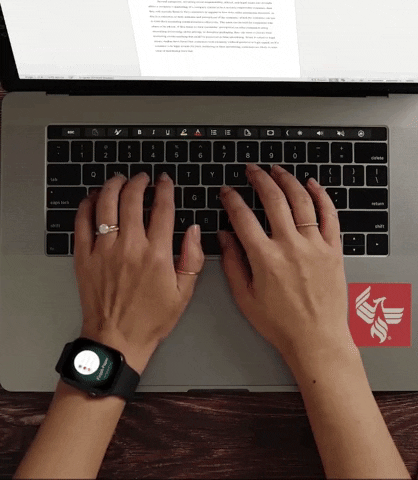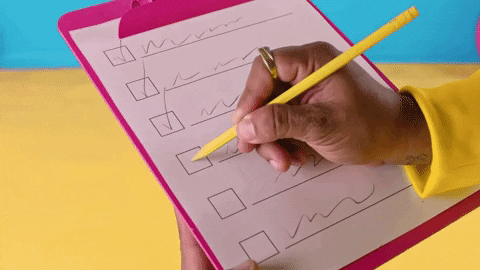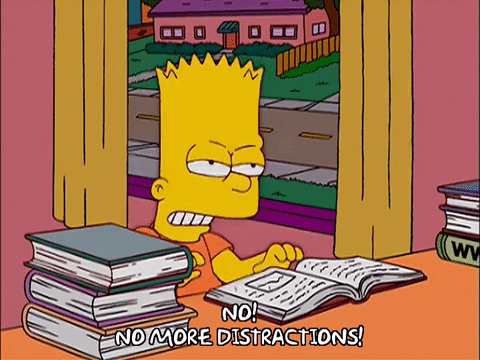Time management is an essential skill that everybody has to master, whether they are students or employees.

After graduating from college, a lot of conditions change for students. There are specific skills they have to be aware of and ready to apply in their work.
To know more, 10 Skills Students Should Learn Before Graduation.
It's already not that easy to balance your daily chores during college because the total amount of time each day is limited to 24 hours, so no matter what, you will always have 24 hours to do all your duties.
If you do not learn how to manage your time during college, it will be so difficult for you to do during your career life; that's why it's necessary to practice time management as early as possible.
Dr. Job Pro is here today to help you deal with your time management problems and prepare you for the working world.

1- Time estimation

The only way to stay organized is to utilize a planner (or a notepad where you may record your activities).
Begin keeping note of what you had intended to accomplish instead of what you did during that time.
For example, it may be scheduling appointments, studying, resting, or socializing.
The first step towards rooting out your traps is to admit you have them.
The results of this procedure should help you determine if particular activities are taking longer than you budgeted or if you are putting off other work.
Knowing exactly how you use your time allows you to determine if it aligns with your priorities. Are you devoting enough of your time to your most important objectives? What else would have to change?
2- Setting Objectives

To keep your objectives moderate, focused, and achievable, limit yourself to three or four days.
It's important to remember that realistic goals are also adaptable goals.
Unexpected sickness, computer difficulties, whatever it is - life is unpredictable, and it's critical to include adaptation into your plans.
Remember to look at the larger picture. It will help you keep motivated and focused while you work to see how your weekly goals relate to your overall aim.
3- Allowing yourself to rest

. Taking a vacation from work isn't a waste of time. It's a wise use of time. When you are well-rested, you generate high-quality work.
Short pauses for the downtime should be squeezed in between tasks. Every hour or two, take a five-minute break to rest and think creatively.
You may use an alarm clock to notify you when your break is coming up.
Stop working and sit at your desk to meditate, or go for a cup of coffee.
Don't forget to leave plenty of time for lunch. You can't work well if you're hungry.
4- Overcoming Procrastination

Remember that the ideal moment to accomplish something is typically right now.
To overcome Procrastination and get what needs to be done completed, push yourself a bit harder.
Saying to yourself that you are just going to work on a job for a few minutes, say ten minutes, is an excellent approach for Overcoming Procrastination.
Your creative energy will begin to flow as you start the project.
You will then discover that you want to continue working on the assignment and maybe complete it.
The key to overcoming Procrastination is to set aside a short amount of time to begin.
5- Minimizing distractions

They hinder you from doing vital work since they interrupt your attention, reduce your productivity, and force you to complete jobs later than you had planned.
You must identify what's getting in the way of you doing essential duties and stop it. Try to keep all distractions to a minimum.
Tell your friends not to text you during work and keep your social media accounts off.
6- Using effective planning

To make sure everything essential is documented.
Prioritize the time you spend studying, sleeping, exercising, and spending time with family and friends.
Prioritize your goals and then schedule your efforts to meet those goals.
Determining the feasibility of the strategy will let you know if you have enough time to finish everything.
You could find that you have too many obligations or that you're on the edge of doing too much, which necessitates learning how to say "no." There are some boundaries to what you can do – find out where those limits are and accept them.
If you need to have an organized task list to better time management, try using Trello. Using color codes, you may sort tasks, make checklists, and set due dates by subject or theme; or you can sort lessons based on broad themes (e.g., academics, work, home).








 2023-04-26
2023-04-26
 2023-04-04
2023-04-04
 2023-03-22
2023-03-22
 2023-03-20
2023-03-20
 2023-03-08
2023-03-08